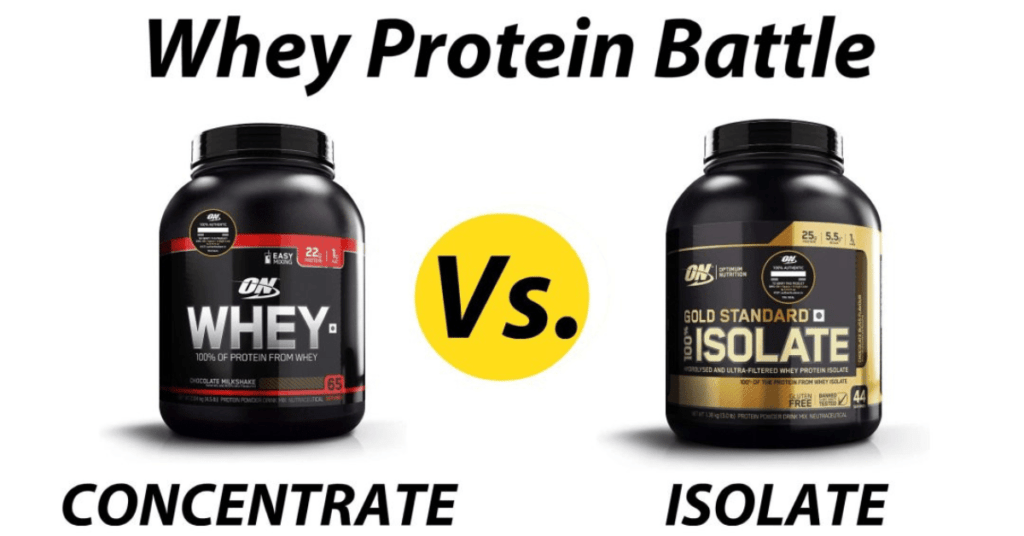Whey Protein Concentrate vs. Isolate: Which Should You Choose?

In the sphere of fitness and nutrition, the search for the ideal protein supplement is a never-ending one. Due to the variety of choices out there, choosing the right one can be a difficult task. Among the numerous options, whey protein is the most popular and most efficient protein source. However, within the realm of whey protein, there are two primary contenders: whey protein concentrate and whey protein isolate. Both boast their own set of benefits and drawbacks, leaving many wondering: What should you choose?
The Basics of Whey Protein
Before we start with the details of whey protein concentrate and isolate, let us first of all get to know what whey protein is and why it is so popular in the fitness world.
Whey protein is a high-quality protein that is obtained from milk during the cheese-making process. It contains all the nine essential amino acids, hence, it is a complete protein source. In addition, whey protein is rapidly absorbed by the body so it is the perfect option for the after-workout recovery.
Whey Protein Concentrate: The All-Rounder
Whey protein concentrate is the most common form of whey protein. It goes through very little processing, hence, it keeps the majority of the beneficial nutrients that are naturally present in whey, for example, little amount of fat and lactose.
Pros of Whey Protein Concentrate:
- Cost-Effective: Whey protein concentrate is usually much cheaper than isolate, thus, it is considered a budget-friendly option for the people who want to enhance their protein intake without spending a fortune.
- Nutrient-Rich: Although whey protein concentrate has been processed less than the other types of the protein, it still contains a lot of nutrients that are good for the body, such as lactoferrin and immunoglobulins which are the compounds that protect the immune system.
Cons of Whey Protein Concentrate:
- Higher in Calories: The whey protein concentrate has a much higher fat and carbohydrate content than the isolate, therefore it may contain more calories. Thus, this is not a problem for everybody, but for those who are watching their calories they should be aware of it.
- Lower Protein Content: Whey protein concentrate usually comprises of 70-80% protein by weight, thus you will have to eat more to get the desired protein intake than isolate.
Whey Protein Isolate: The Purest Form
The other way of doing it is whey protein isolate. This type of whey protein is further processed to eliminate more of the fat and lactose, thereby it becomes a product that is more concentrated in protein.
Pros of Whey Protein Isolate:
- Higher Protein Content: Whey protein isolate is more protein-dense, with up to 90% of protein by weight. Hence, it is a perfect option for those who want to boost their protein intake without eating too many calories.
- Lower in Calories and Fat: Whey protein isolate has less fat and lactose, which makes it a leaner option, thus, it is a perfect option for people who are counting their calorie intake or following a strict diet plan.
Cons of Whey Protein Isolate:
- Price: The extra processing for the generation of whey protein isolate makes it expensive than the concentrate. Though it is a costly choice for some people, others may consider it not to be worth it.
- Reduced Nutrient Profile: The extra processing which is done to create whey protein isolate may take away some of the useful compounds which are present in whey protein concentrate, for instance, the ones that boost the immune system.
